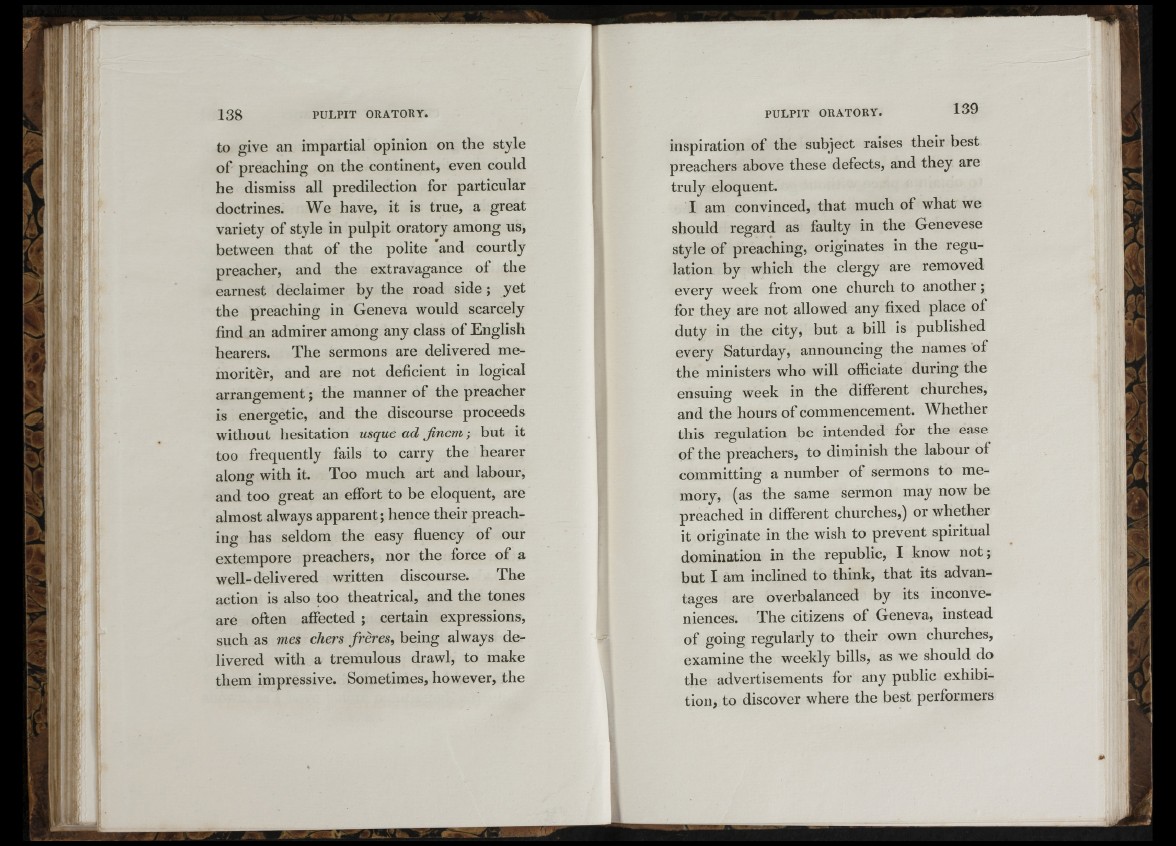
138 PULPIT ORATORY.
to give an impartial opinion on the style
of preaching on the continent, even could
he dismiss all predilection for particular
doctrines. We have, it is true, a great
variety of style in pulpit oratory among us,
between that of the polite and courtly
preacher, and the extravagance of the
earnest declaimer by the road side ; yet
the preaching in Geneva would scarcely
find an admirer among any class of English
hearers. The sermons are delivered me-
moritèr, and are not deficient in logical
arrangement ; the manner of the preacher
is energetic, and the discourse proceeds
without hesitation usque ad jinem ; but it
too frequently fails to carry the hearer
alono- with it. Too much art and labour,
and too great an effort to be eloquent, are
almost always apparent; hence their preaching
has seldom the easy fluency of our
extempore preachers, nor the force of a
well-delivered written discourse. The
action is also too theatrical, and the tones
are often affected ; certain expressions,
such as mes chers frères, being always delivered
with a tremulous drawl, to make
them impressive. Sometimes, however, the
inspiration of the subject raises their best
preachers above these defects, and they are
truly eloquent.
I am convinced, that much of what we
should regard as faulty in the Genevese
style of preaching, originates in the regulation
by which the clergy are removed
every week from one church to an o th e r;
for they are not allowed any fixed place of
duty in the city, but a bill is published
every Saturday, announcing the names oi
the ministers who will officiate during the
ensuing week in the different churches,
and the hours of commencement. Whether
this regulation be intended for the ease
of the preachers, to diminish the labour of
committing a number of sermons to memory,
(as the same sermon may now be
preached in different churches,) or whether
it originate in the wish to prevent spiritual
domination in the republic, I know n o t;
but I am inclined to think, that its advantages
are overbalanced by its inconveniences.
The citizens of Geneva, instead
of going regularly to their own churches,
examine the weekly bills, as we should do
the advertisements for any public exhibition,
to discover where the best performers